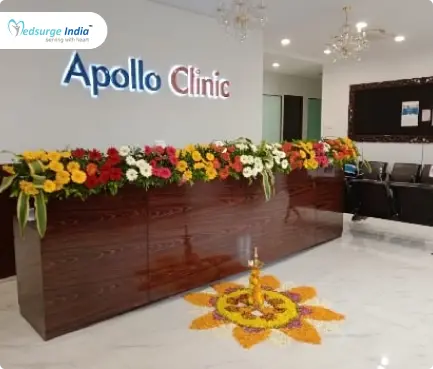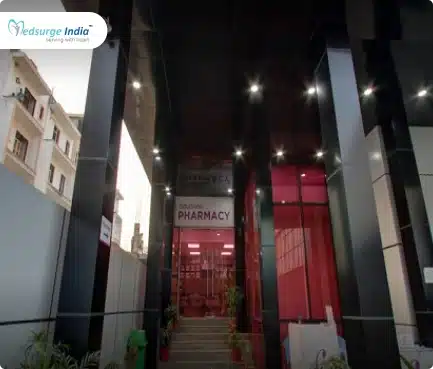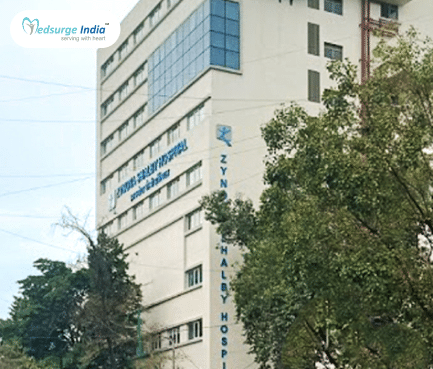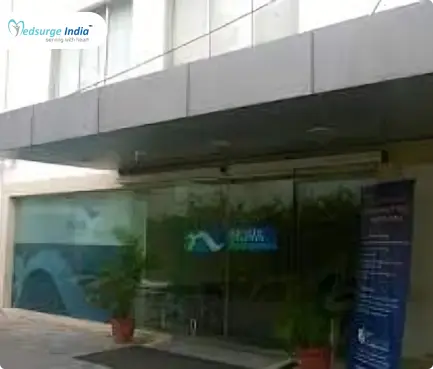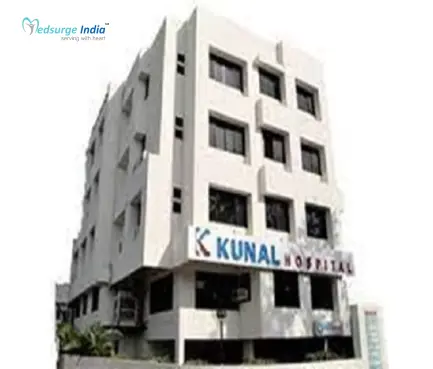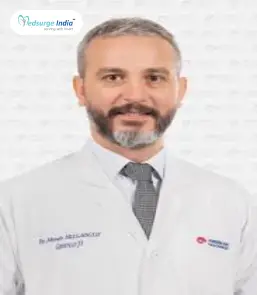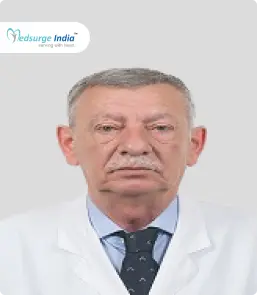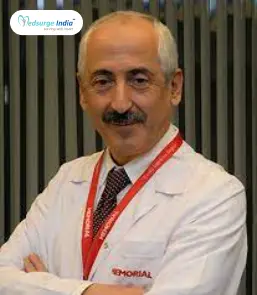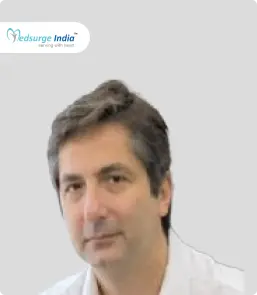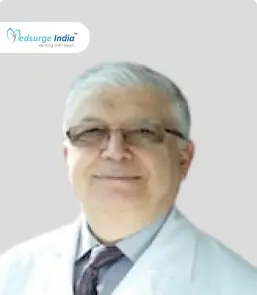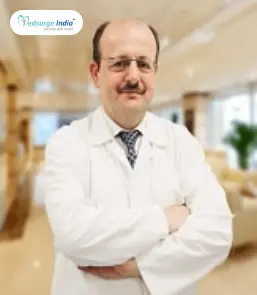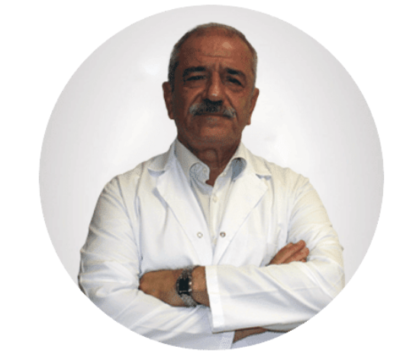
Testicular Implant Surgery Cost in Turkey
The cost of testicular implant surgery in Turkey is determined by various factors, with the primary consideration being whether the implant is intended for one or both testicles. In Turkey, the cost of a testicular implant surgery can vary between 3000 USD and 12,000 USD.
Factors That Can Affect Testicular Implant Surgery Cost in Turkey
Below are the following factors that can affect testicular implant surgery cost in Turkey:
Type and Quality of Implant: The choice of implant material and brand, whether silicone or saline, can significantly affect the total expense of testicular implant surgery cost in Turkey.
Surgeon’s Expertise: Surgeons with extensive experience and a proven track record may command higher fees for their services.
Hospital Infrastructure: Facilities that are well-equipped and internationally accredited often have elevated cost of testicular implant surgery in Turkey.
Pre-operative Tests and Consultations: The expenses for diagnostic tests and consultations contribute to the overall financial outlay for testicular implant surgery in Turkey.
Anesthesia and Surgical Fees: The fees associated with the anesthesiologist and surgical team are part of the total cost of testicular implant surgery in Turkey.
Post-surgical Care: Expenses for medications, follow-up visits, and recovery room services can impact the final bill for testicular implant surgery in Turkey.
Location of the Hospital: The cost may differ based on whether the procedure is performed in Istanbul, Ankara, or other locations.
Additional Treatments: If the procedure is performed alongside other treatments, such as a penile implant, the overall cost may be for testicular implant surgery in Turkey.
Testicular Implant Surgery Cost in Different Cities in Turkey
| Cities | Prices |
| Istanbul | $2800 to $12,000 |
| Antalya | $2800 to $12,000 |
| Izmir | $2800 to $12,000 |
| Ankara | $2800 to $12,000 |
Testicular Implant Treatment in Detail
Testicular implants are performed on males who are born with a single testicle or have had one removed due to conditions such as cancer, accidental injury, testicular torsion, or failure of the testicle to descend. Common causes for the absence of a testicle include congenital absence, developmental issues, infections, and gender reassignment surgery. Materials such as metal alloys, Lucite, marbles, Plexiglas, Dacron, and polyethylene were used, but these have since been phased out. Currently, silicone gel-filled implants, which are approved by the FDA, are the standard.
As previously noted, there are several advantages to receiving these implants. While the external appearance of the scrotum remains unchanged, many patients report a significant boost in self-esteem. Any complications that may arise can typically be addressed, and the implant can be removed if necessary. The implants are available in various sizes—small, medium, and large—allowing for a good match with the existing testicle.
On the downside, although the appearance of the implant is similar to that of a natural testicle, the silicone saline-filled implant tends to feel hard and lacks pliability. These implants serve purely aesthetic purposes and do not function to produce sperm or testosterone. Additional risks include potential shifting of the implant if not properly placed, which can lead to discomfort, pain, inflammation, bruising, or infection, both internally and externally. It is also crucial to be aware of possible complications related to anesthesia use.
Various Types of Testicular Implants
Over the years, a range of materials has been utilized to create testicular implants, including glass, plastic, metal, rubber, and silicone. The modern testicular prosthesis options include:
Saline-Filled Implants: The only FDA-approved type of testicular implant is the saline-filled prosthesis. This implant closely resembles a natural testicle in terms of softness, weight, and size, and is filled with a saline solution before implantation.
Soft-Solid Implants: These implants are filled with a cured silicone elastomer before being implanted. Available in various sizes, they share similarities with silicone breast implants. However, soft-solid testicular prostheses are not FDA-approved and can only be found in a limited number of countries outside the United States.
Silicone Elastomer Implants: Made from a thin, smooth silicone elastomer, these prostheses resemble an oval carving block and are designed to mimic the shape and density of real testicles. While silicone elastomer implants are not FDA-approved, they are widely used across the United States and are considered very safe.
Conditions that are Treated with a Testicular Implant
Testicular implants are primarily utilized for the following situations:
- Anomalies in testicle development
- Congenital absence of a testicle
- Surgical excision of a testicle due to trauma
- An undescended testicle that has not moved into the scrotum
- Testicle removal resulting from infection
- Testicle removal as part of testicular cancer treatment
- Gender transition from female to male.
Ideal Candidates for Testicular Implant
Testicular prosthesis may be recommended if you meet the following criteria:
- Should be at least 18 years old.
- Generally in good health.
- Should have realistic expectations about the outcomes.
- Do not have a compromised immune system or diabetes.
- Should have not undergone any prior surgeries.
- Should not have any current infections in your body.
Step-By-Step Process for Testicular Implant
The process of implanting a testicular prosthesis includes the following steps:
- Initially, an anesthesiologist will administer either general or local anesthesia. General anesthesia will render you unconscious and pain-free throughout the procedure, while local anesthesia will numb the scrotum and nearby areas.
- A urologist will make an incision in the lower groin or upper scrotum using a scalpel. They will then create a pouch within the scrotum to accommodate the prosthetic testicle.
- Once the pouch is prepared, the implant will be secured in the appropriate position within the scrotum. Finally, the incision will be closed with sutures.
- The implantation of a testicular prosthesis is generally a straightforward procedure, typically lasting less than an hour. It is usually performed on an outpatient basis, allowing you to return home the same day. However, it is advisable to have a friend or family member drive you home, particularly if you have received general anesthesia.
Risk
The potential risks associated with testicular prosthesis implantation surgery include:
- Infection.
- Accumulation of blood in the scrotum (hematoma).
- Discontent with the aesthetic outcome post-surgery.
- Scarring surrounding the implant.
- Displacement of the prosthesis.
- Rupture or leakage of the prosthesis.
- Expulsion of the prosthesis from the body, which typically occurs in cases of infection.
A Note From Medsurge India
Testicular implant surgery in Turkey provides a dependable and efficient option for men looking to enhance their physical appearance and boost their self-esteem. The country is recognized for its experienced urologists, state-of-the-art medical facilities, and competitive pricing, making it a top choice for this type of procedure. Medsurge India allows patients to enjoy a smooth and supportive experience, from the initial consultation to the recovery phase, guaranteeing both comfort and high-quality care at every step.
Get Free Cost Estimation
The Most Important Frequently Asked Questions
Q: What Is the Expected Lifespan of Testicular Implants?
A: A testicular prosthesis can potentially last a lifetime, similar to other prosthetic devices. However, additional procedures may be necessary to address any complications. In some cases, the area surrounding the implant may experience discomfort, and this pain can persist even after the device is removed.
Q: Which Testicular Implant Is Considered the Best?
A: The Torosa saline-filled testicular prosthesis is the only testicular implant approved by the FDA for use in both adults and children with congenital anarchism and monorchism.
Q: What Is the Success Rate of Testicular Implants?
A: The insertion of testicular prostheses has been linked to an enhancement in body image for 50–60% of patients, indicating that it may alleviate negative feelings. Many men are motivated to pursue a prosthesis in order to achieve a sense of “normalcy,” often driven by concerns regarding their self-image.
Q: What Is the Success Rate of Testicular Implants?
A: You have the option to have the prosthesis taken out. Similar to other prosthetic devices, a testicular prosthesis can potentially last for a lifetime.
Q: Is It Possible to Enhance Testicle Size?
A: Although testicle size can vary naturally and may decrease with age or specific health issues, there is currently no medically validated technique to enlarge them beyond their natural dimensions or to reverse shrinkage.
Top Hospitals for Testicular Implant Surgery in Turkey
Top Doctors for Urology Treatment
Dr. Vahit Güzelburç
Consultant
Experience: 11 years of experience
Medipol University Hospital, İstanbul
Istanbul, Turkey
Dr. Mehmet Erkan Erbay
Professor
Experience: 28 years of experience
Okan University Hospital, Tuzla
Istanbul, Turkey
Dr. Ahmet Musaoglu
Senior Consultant
Experience: 18 years of experience
American Hospital, Istanbul
Istanbul, Turkey
Prof. Dr. Faruk Yencilek
Chief
Experience: 20 years of experience
Yeditepe University Healthcare Institutions, Istanbul
Istanbul, Turkey
Prof. Dr. Fatih Kurtulus
Professor
Experience: 24 years of experience
Medistanbul Hospital, Istanbul
Istanbul, Turkey
M.D. Emre Arpali
Professor
Experience: 10 years of experience
KOC University Hospital, Istanbul
Istanbul, Turkey
Dr. Engin Bazmanoglu
Principal Consultant
Experience: 22 years of experience
American Hospital, Istanbul
Istanbul, Turkey
Dr. Murat Zor
Consultant
Experience: 23 years of experience
Kolan International Hospital, Istanbul
Istanbul, Turkey
Dr. Turhan Caskurlu
Professor
Experience: 28 years of experience
Memorial Hospitals Group, İstanbul
Istanbul, Turkey
Dr. Sercan Yilmaz
Consultant
Experience: 15 years of experience
Kolan International Hospital, Istanbul
Istanbul, Turkey
Dr. Zeynep Yılmaz
Consultant
Experience: 20 years of experience
Anadolu Medical Center, Kocaeli, Istanbul
Istanbul, Turkey
Dr. Ilhami Gulluoglu
Consultant
Experience: 17 years of experience
Istinye University Medical Park Gaziosmanpasa Hospital, Turkey
Istanbul, Turkey
Dr. Murat Bagisgil
Consultant
Experience: 19 years of experience
Medical Park Group, Istanbul
Istanbul, Turkey
Prof. Dr. Remzi Saglam
Senior Consultant
Experience: 42 years of experience
Medicana International Ankara
Istanbul, Turkey
Spec. Dr. Basri Çakıroğlu
Consultant
Experience: 34 years of experience
Hisar Hospital Intercontinental, Istanbul
Istanbul, Turkey
Dr. Veli Simsek
Senior Consultant
Experience: 27 years of experience
Kolan International Hospital, Istanbul
Istanbul, Turkey
Dr. Sefik Citci
Consultant
Experience: 20 years of experience
Kolan International Hospital, Istanbul
Istanbul, Turkey
Prof. Dr. Serkan Altinova
Senior Consultant , Graduation, Post Graduation
Experience: 23 years of experience
Acibadem Hospitals Group
Ankara, Turkey
Dr. Mustafa Yektaoglu
Consultant , Post Graduation, Graduation
Experience: 22 years of experience
Kolan International Hospital, Istanbul
Istanbul , Turkey
Dr. Mehmet Remzi Erdem
Consultant
Experience: 11 years of experience
Private Duygu Hospital
Istanbul, Turkey








